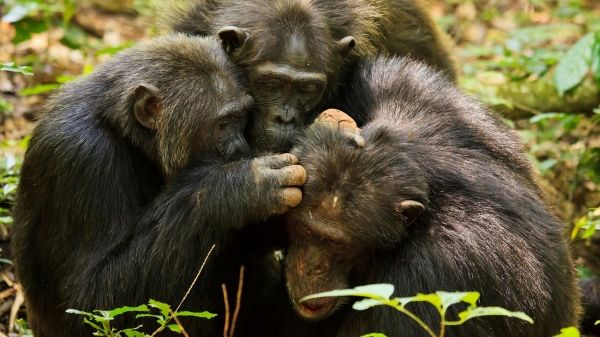Old friends get together to relax, share meals, and trust and support each other. In the latter part of life, these friendships are highly valued. Recent research shows this happens in chimpanzees as well as humans.
Chimpanzee and human friendships show many parallels, according to new research published this week in Science by associate professor Martin Muller at The University of New Mexico Anthropology department, associate professor of Anthropology and co-director of the Comparative Human and Primate Physiology Center Melissa Emery Thompson, and their colleagues.
This work, a collaboration among researchers at UNM, University of Michigan, Tufts University, and Harvard University, uses data from the Kanyawara chimpanzee community living in Kibale National Park in Uganda and was funded by the National Institutes of Health and the National Science Foundation. These chimpanzees have been studied for decades by the Kibale Chimpanzee Project, and researchers leveraged this exceptional dataset to test socioemotional selectivity theory – an influential idea in psychology aimed at explaining why humans show changes in social interactions during aging.
Continue reading at University of New Mexico.
Image via University of New Mexico.


